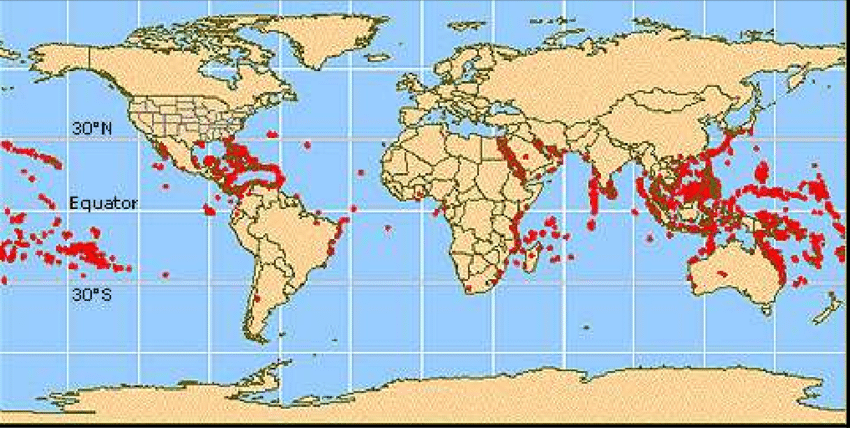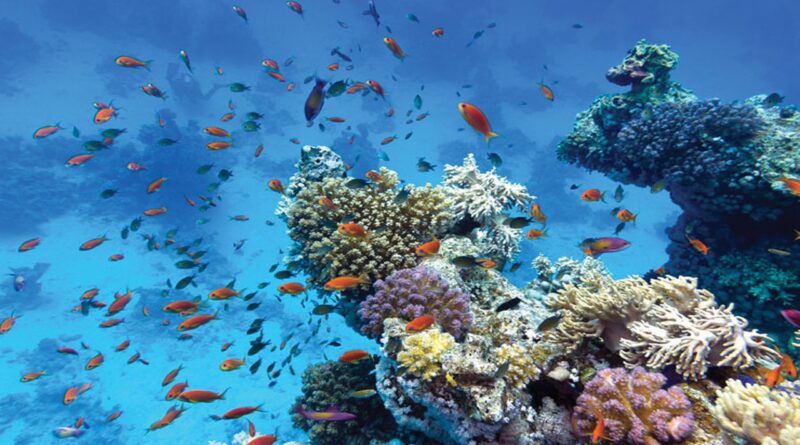Conditions Needed for Growth of Coral Reefs
Corals are found throughout the oceans, from deep, cold waters to shallow, tropical waters. Conditions favourable to growth of corals reefs can be discussed as under:
- Shallow coral reefs grow best in warm water (70–85° F or 21–29° C). It is possible for soft corals to grow in places with warmer or colder water, but growth rates in these types of conditions are very slow.
- Reef-building corals prefer clear and shallow water, where lots of sunlight filters through to their symbiotic algae. The most prolific reefs occupy depths of 18–27 m.
- Corals also need salt water to survive, so they also grow poorly near river openings with fresh water runoff.
- Other factors influencing coral distribution are availability of hard-bottom substrate and the availability of food such as plankton.
Location of Coral Reefs
Coral reefs develop in shallow, warm water, usually near land, and mostly in the tropics. There are coral reefs off the eastern coast of Africa, off the southern coast of India, in the Red Sea, and off the coasts of northeast and northwest Australia and on to Polynesia. There are also coral reefs off the coast of Florida, USA, to the Caribbean, and down to Brazil.
The Great Barrier Reef (off the coast of NE Australia) is the largest coral reef in the world. It is over 2000 km long.

Importance of Coral Ecosystems
- Coral reefs are some of the most diverse and valuable ecosystems on Earth. Coral reefs support more species per unit area than any other marine environment, including about 4,000 species of fish, 800 species of hard corals and hundreds of other species. They are often referred to as the Rainforests of the Sea.
- Healthy coral reefs have rough surfaces and complex structures that dissipate much of the force of incoming waves. This buffers shorelines from currents, waves, and storms, helping to prevent loss of life, property damage, and erosion. Reefs are also a source of sand in natural beach replenishment.
- Being storehouses of immense biological wealth, reefs also provide economic and environmental services to millions of people. Healthy reefs contribute to local economies through tourism. Diving tours, fishing trips, hotels, restaurants, and other businesses based near reef systems provide millions of jobs and contribute billions of dollars all over the world. Coral reefs serve as habitat for many commercially important species targeted for
fishing. - Coral ecosystems have proven to be beneficial for humans through the identification of potentially beneficial chemical compounds and through the development of medicines, both derived from organisms found in coral ecosystems. Many drugs are now being developed from coral reef animals and plants as possible cures for cancer, arthritis, human bacterial infections, viruses, and other diseases.





